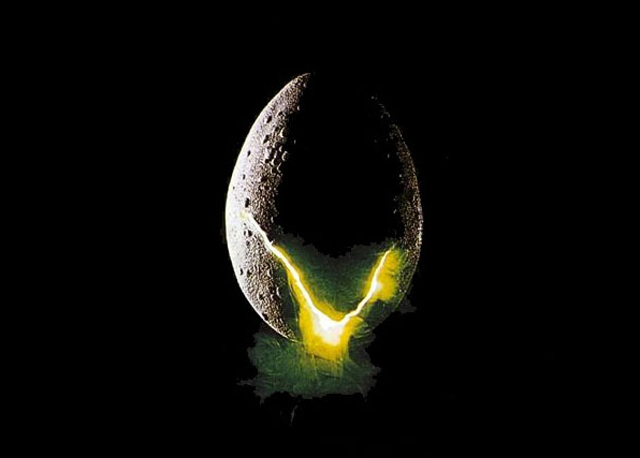
For as long as science fiction has existed as a genre in film-making, there has been a long tradition of movies centered around extra-terrestrial life. The concept of life beyond our own planet is a compelling one, and there are certainly many avenues to explore with it as well. There’s the peaceful visitor angle explored in films such as The Day the Earth Stood Still (1951), Close Encounters of the Third Kind (1977), and of course E.T.: The Extra-Terrestrial (1982). There is also the hostile threat angle explored in War of the Worlds (1953), The Thing (1982), and Predator (1987). Oftentimes, the most popular alien based movies fall under the monster movie angle, making the creatures symbols of terror meant to frighten movie goers everywhere. No where else have we seen this type of movie realized more vividly and more frighteningly than in the Alien franchise. The brain child of writer Dan O’Bannon, the Alien series is among the most of sci-fi pictures ever made, taking the genre out of it’s goofy, B-movie past and turning it into the stuff of nightmares. This was largely due to the completely earnest efforts of it’s filmmakers to never sugarcoat the terror and to fully immerse the audience in an atmospheric dread the likes of which we had never seen before on film. The other interesting aspect of the Alien franchise is how it evolved over the years; sometimes in good ways like with the beloved sequel, Aliens (1986), and other times in bad ways, like with the two follow-ups there after. In this article, I will be looking at what is called the Alien Quadrilogy, which is the set of 4 films that launched the franchise and were centered around the character of Ellen Ripley (played by Sigourney Weaver). So, I won’t be including the Alien vs. Predator spinoff series here, nor the recent prequel films, Prometheus (2012) or Alien: Covenant (2017), since they are unrelated to the Ripley story-line. So, let’s head into the darkest reaches of space and learn why in space, no one will hear you scream.
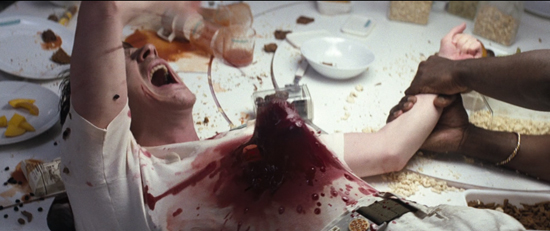
ALIEN (1979)
Directed by Ridley Scott
It’s hard to believe now how daring a movie like Alien was when it was made back in the late 70’s. For the longest time, science fiction was a pool of campiness and cheap special effects. And only two years prior, Star Wars had revolutionized the genre with an emphasis on action adventure. But, the makers of Alien had a different outlook on the genre that would end up making it really stand out in the grand scheme of things. Dan O’Bannon’s original concept called for a vision of alien life that was far darker than anything we had seen before; a destroyer of civilizations and something far better left undiscovered. While the concept was watered down over many subsequent drafts, the idea still struck a cord in Hollywood, and the film managed to make it’s way into 20th Century Fox, who were already hitting a high after the success of Star Wars. Thankfully for O’Bannon’s script, Fox brought on board a director who could do justice to the bleaker vision of the story. That director was newcomer Ridley Scott, a visual artist turned filmmaker with only one other film made before this (1977’s The Duellists). Scott drew inspiration not from the sci-fi genre during his production, but from horror flicks that were beginning to become popular at the time, such as those from the likes of John Carpenter and Wes Craven. As Scott saw it, this was a haunted house movie set in space, and it gave him the right frame of tone to craft his movie around. And to make that vision feel even more effectively disturbing, he called upon the skills of artist H. R. Geiger to design much of the movie, including the alien himself. Geiger’s neo-gothic designs in particular help to set the Alien movies apart, and their deeply unsettling nature is still iconic to this day.
But, all in all, Alien is an iconic film because it is so thoroughly is confident in it’s identity. You never feel for once while watching the movie that your experiencing a compromised vision. It is dark, disturbing, and relentless in it’s tension. O’Bannon’s deeper mythology may have needed to be parred down, but it doesn’t ruin the experience one bit, and it even makes the film feel more mysterious as a result; making us ask who or what was the Space Jockey and how did this alien creature destroy so much life? The cast of the film also help to fit within the tone of the film. Since the story is centered around a group of space freighters, it makes sense that all of them have a grittier sense of character to them, and the movie does a great job of making them all feel authentic and personable, and more than just lambs to the slaughter. And every death in this movie is more than impactful, especially the iconic chest-burster scene with the late John Hurt. That moment in particular is probably the first thing that comes to mind when anybody mentions this movie, and really it’s the thing that cemented this film’s legendary status. Ridley Scott’s direction also perfectly captures the atmosphere of the story. It’s bleak, but oddly beautiful at the same time. He not only set a high standard for the sci-fi genre hereafter for this movie, but with horror films too. His use of oppressive darkness and misty steam filled corridors is amazingly effective. Not only that, but he has the good sense to keep the “Xenomorph” alien creature hidden in the shadows until shown for maximum impact, like in the vent chase scene. The first Alien alone is a compelling story of survival, and probably unbeknownst to Scott and his team, the lone survivor of this story, Ellen Ripley, would go down as one of cinema’s greatest heroines; but her time was still yet to come in this series.
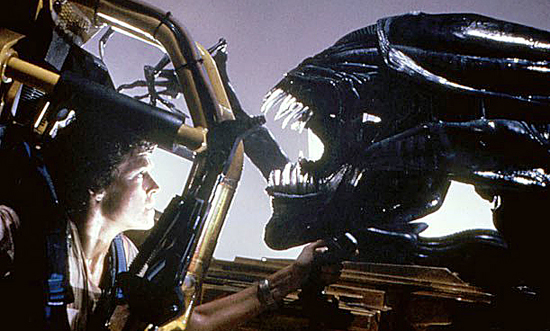
ALIENS (1986)
Directed by James Cameron
The success of the first Alien left a strong impression on Hollywood, showing that audiences were willing to see darker films within the sci-fi genre. It also set the bar pretty high thereafter, leading to a lot of pressure on Fox to make a follow-up sequel that could live up to the original. After Ridley Scott passed, choosing instead to make films like Blade Runner (1982) and Legend (1986), Fox looked elsewhere for someone to guide the franchise. James Cameron, who was hot of the success of The Terminator (1984), was tasked with the role of making a sequel to Alien. To many people’s surprise, not only did he accomplish this, but some would even say that Cameron made an even better movie than the original. Cameron’s sequel, Aliens, works as well as it does because he made the smart choice to not just copy what had been done before, but instead make a different kind of movie altogether. Aliens is completely different in tone, style, and plotting than the original film. Where Ridley Scott attempted to make a horror movie, Cameron instead made an action flick; just set in the same universe. And it completely works. The Xenomorph creatures are still just as terrifying, especially the monstrous Queen, but the film spends less time building the dread around them and instead finds it’s energy with the characters engaging these monsters in combat. The plot is very different too, with less emphasis put on the different ways that the characters will die in the film, and more centered around how they can strategize their chances of survival and be able to destroy these creatures. We are also introduced in this movie to the idea of the Weyland Yutani corporation as this antagonistic force (personified through a sleazy corporate representative played by Paul Reiser) who we learn are somewhat responsible for spreading the Xenomorph’s presence across the galaxy. Here we find Cameron injecting some political subtext into the franchise, that more or less enriches a standard good vs. evil plot.
But what really makes Aliens an iconic film more than anything is then character of Ellen Ripley. Though already established in the previous Alien movie, Ripley didn’t really come into her own as a character until this sequel. We delve far deeper into her character, finding that she is far more than just a survivor, but a resourceful fighter as well. Sigourney Weaver makes a triumphant return here, emboldening Ripley with far more grit and resolve than any heroine that we had seen in a movie up to that point. Strong female protagonists have long been a common motif in James Cameron movies, like Sarah Conner in The Terminator or Rose in Titanic (1997), but Ripley is his true greatest achievement in writing character, and she has since become an influential character for all cinema. Before, Hollywood didn’t believe that action films headlined by women could never work, and both Cameron and Sigourney Weaver proved them all wrong. That alone is a great legacy for this film. Weaver was praised so much for her standout work in the movie that it even earned her an Oscar nomination for Best Actress, the first of her career. At the same time, her performance is perfectly balanced with a strong cast around her. Each actor in the ensemble manages to rise above the stereotype of tough guy space marines and actually become interesting individuals in their own right. Particularly memorable are Michael Biehn as the noble Corporal Hicks and the late Bill Paxton as Private Hudon, who nails some of the film’s sillier lines (“Game Over Man!!”). There’s also a tender, emotional performance from young Carrie Henn as the orphaned child Newt, who manages to turn into a surrogate daughter for Ripley. Their relationship gives the movie surprising heart at it’s center, and makes us feel more connected with their plight. It also gives more weight to the iconic confrontation between Ripley and the Queen, with Ripley uttering the now legendary line of “Get away from her, you Bitch.” Captivating in it’s action, progressive in it’s themes, and unafraid of changing the course of it’s franchise, Aliens is a textbook example of how to do a sequel right.
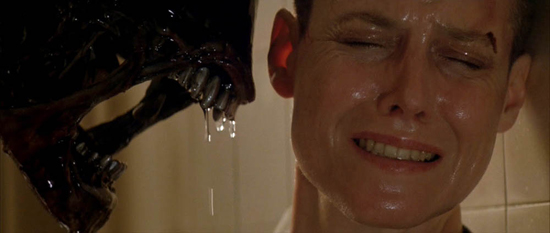
ALIEN3 (1992)
Directed by David Fincher
Unfortunately, future installments of this series would fall way short of Aliens example. A third film in this franchise wallowed in development hell for several years, with no one knowing quite what to do with it. Several directors were brought on board at various times, including Ridley Scott mulling a possible return. Eventually, Fox landed the project into the hands of commercial and music video director David Fincher, who was to make his feature film debut here. Fincher unfortunately found that he had been saddled with a project that was doomed from the beginning. The film started shooting without a finished script and the entire run of production found Fincher being inundated with a ton of studio interference. Sigourney Weaver also made a lot more demands this time around as a condition of her returning to the franchise, and some of them (like the insistence of not having gun violence present in the story) ended up neutering the gorier vision that Fincher wanted to put on screen. It all makes the film feel far more compromised a vision compared to it’s predecessors. While some of the ideas present are interesting, like Ripley finding herself in an all male prison, which is a scary place on it’s own even without the Xenomorphs, the movie never gels into a compelling film overall, nor works as either horror or action adventure. Sigourney Weaver is still okay in the film, but it gives her nothing worthwhile to do like Aliens did. The film even alienated audiences further by killing off the beloved characters of Hicks and Newt right from the beginning, completely wiping all development for Ripley’s character, giving her nothing to fight on for. Fincher’s direction is unfocused, which is not surprising since it’s his first feature. He has since disowned the movie and now looks back on it as a learning experience in how not to make a film. Still, the movie does earn points with the extra polish given to it’s visual effects. The Xenomorphs in this film are outstanding, and genuinely terrifying. If only the film around them didn’t look so drab, and the story wasn’t so boring.
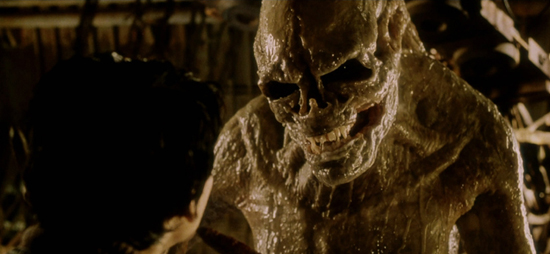
ALIEN RESURRECTION (1997)
Directed by Jean-Pierre Jeunet
Several more years would pass before Fox decided to revisit the Alien well again. This time, they were eager to return to the more horror driven thrills of Ridley Scott’s original. And when you think of someone who can pull off a sci-fi horrorshow, you instantly think of the director of Amelie (2001), right? Okay, French director Jeunet is an odd choice to give the reigns of this franchise over to, but no one can deny that he is a strong artistic eye, something that he showed off well in his earlier films Delicatessen (1991) and The City of Lost Children (1997). In truth, there are some interesting artistic choices in Alien Resurrection too, but that’s about it. Resurrection is a very fascinating failure, mainly in the fact that so many talented people involved managed to make such a horrible movie. The story itself is pointless, finding Ripley revived centuries after her death in Alien3 thanks to genetic cloning. But Ripley here is not the same Ripley as we’ve grown to love before, mainly due to the fact that her genetic code is mixed with that of a Xenomorph alien. It could have been an interesting character element, but the movie never explores it fully, instead focusing too much on tired action scenes that we’ve seen a million times before. Weaver in particular seems very disinterested this time around, and it’s clear that she returned just for the paycheck only. The movie really is just a whole lot of unnecessary retreading of stuff already done better in other alien movies. It’s surprising that such a unoriginal script would come from the likes of Joss Whedon, who’s clearly better off working with vampire hunters and Marvel superheroes as his subjects. But, even with a messy production as it stands, the film does come off as a beautiful trainwreck at times, taking the series into some demented places, which is somewhat better than the dreary dullness of Alien3. Still, it’s a big drop-off from the stellar heights of where this series began.
Despite the ups and downs that the Alien franchise has experienced over the years, it is still as influential today as it was when it first began. Countless sci-fi horror blends made in the years since have the original to thank for showing Hollywood that it could work. The series is also responsible for propelling the careers of two of our greatest filmmakers, Ridley Scott and David Fincher, although Scott looks back more fondly on his experience than Fincher does. Scott in fact has managed to find his way back into this world and explore it even further with his prequel set of films, finally being able to explain more about this world that he could only hint at before in the original Alien. Now, some would argue that he was better off leaving some of those things a mystery and that these new films, Prometheus and Alien: Covenant are unnecessary retreads, but that’s up to debate (personally I thought Prometheus was alright; not Alien or Aliens good, but not bad either; I have yet to see Covenant as of this writing). The best thing about this franchise, however, is that it’s a series that pushed boundaries and changed Hollywood largely for the better. The original showed that you could make a movie that was horrifically gory without being schlocky. The franchise also showed that you could switch genres midway through and still retain the same identity. And most importantly, it made Sigourney Weaver the first ever female action movie star, and showed that in an era dominated by the likes of Schwarzenegger and Stallone that women could headline an action flick just as effectively. That, in the end, could be Aliens’ most honorable legacy and female action stars today like Charlize Theron and Scarlett Johansson have Sigourney Weaver and Ellen Ripley to thank for that. In addition, H. R. Geiger’s designs for the Xenomorph alien continue to be a work of pure nightmarish genius. Honestly, if that design hadn’t captured our imagination as well as it did, there probably wouldn’t have been a franchise at all. The Alien Quadrilogy stands as a truly iconic series, with daring visuals, one hell of a great heroine, and probably the most terrifying monsters we will ever see on the big screen.